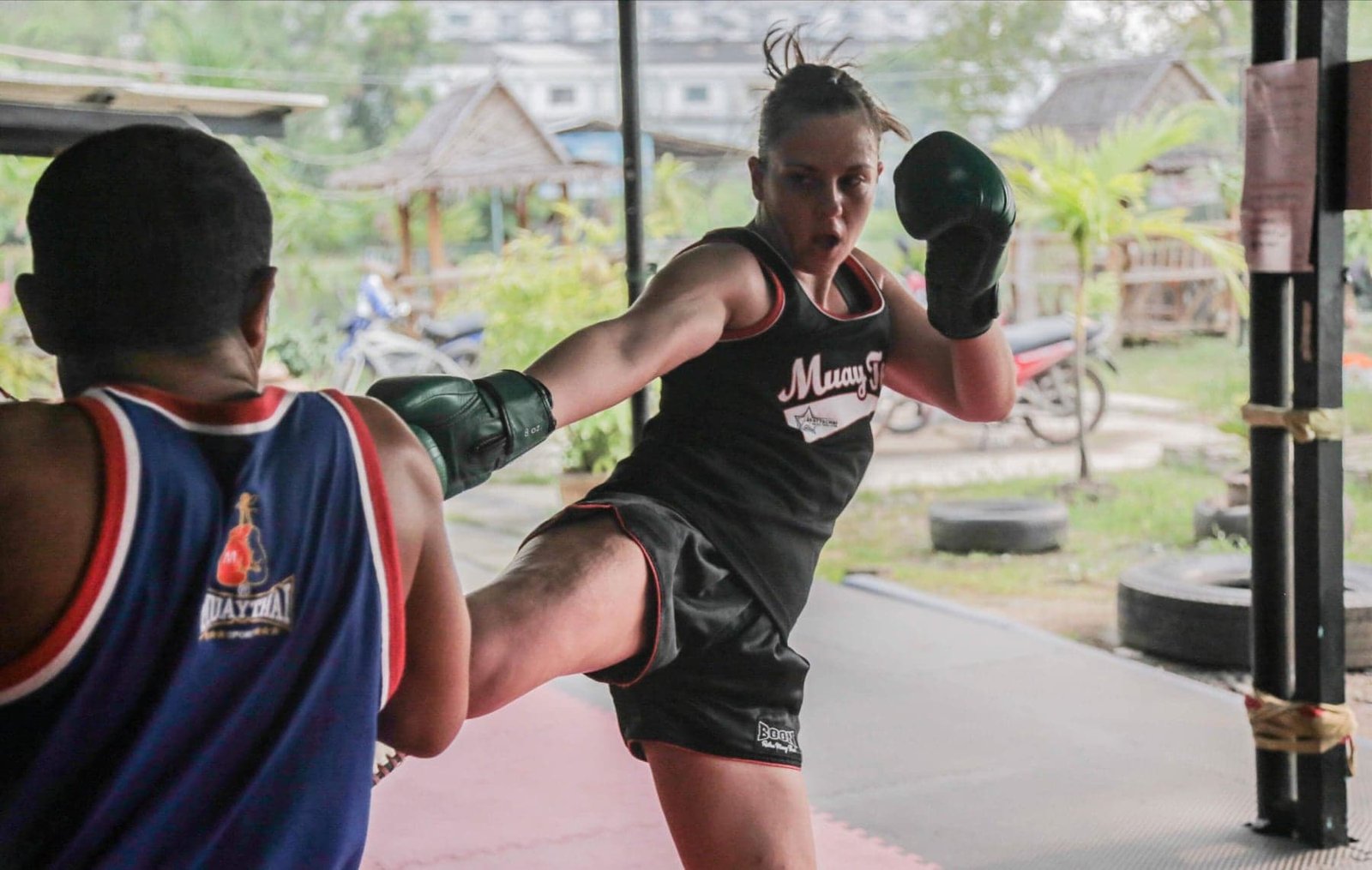After surviving an attempted rape by a Muay Thai trainer who worked in the gym where she trained, Emma Thomas fights to end sexual assault in the sport.
After graduating university, Emma Thomas moved to Thailand from her home in the UK. She was 22.
She had fallen in love with Thailand on a trip there, and was excited to return.
During her second month in Thailand, Thomas discovered Muay Thai, also known as Thai boxing. Thailand is famous for Muay Thai, and many Muay Thai fighters from abroad move to Thailand to train there. Thomas had not previously been trained in any combat sports, but she was eager to learn. She spent the entire month training at a gym in Northern Thailand.
During this training, Thomas developed friendships with a few men who also trained in the gym. One night, Thomas and her friends hung out with one of the trainers. The trainer brought Thomas back to his hotel room, and attempted to rape her.
Thomas managed to escape before the trainer could penetrate her, and the next day, she notified the gym manager about the trainer’s behavior. Although the trainer was promptly fired, there was no way to blacklist him, because, as Thomas notes in one blog entry, there is no official registrar for Muay Thai trainers.
After escaping this attempted rape, Thomas, now 30, continued to blog about her experiences as a female Muay Thai fighter in Bangkok. She has also written extensively about sexist practices in Muay Thai, such as not allowing women to enter boxing rings in the same way as men, and sometimes, not allowing women to fight in certain boxing rings at all.

I was privileged enough to speak with Thomas about what is currently being done to end sexual assault in Muay Thai, as well as in Thai society at large.
Are there any current statistics on the number of women, or men, assaulted by Muay Thai trainers?
I’m afraid there are no statistics for this. A study by the UN has statistics for sexual assault in Thailand, but no such study has been carried out specifically for Muay Thai. In fact, very little has been written about this topic at all. Perhaps I should do a study of my own!
After you survived an attempted rape by your trainer, he was fired from the boxing gym where you trained. You wrote that there is no official registrar, meaning there is no way to blacklist trainers for assault, or attempted assault. So he could very well start working at a new gym, and assault someone there. In many cases, trainers don’t get fired at all, either because they are well respected at the gym, or it will tarnish the gym’s reputation. Could you tell us about any advocacy work that you, or others have done, to promote stricter policies regarding assault?
I teamed up with another female fighter, Sylvie von Duuglas Ittu, to create an online Muay Thai forum with a women’s only section, so women can have discussions in a safe space. Here, there’s a ‘female safety watch list’ of names of trainers to be wary of, as well as the gyms they’re currently training at. Members can post under an anonymous profile, so they can share this information as a warning to others without providing their own identities. In my own gym, I’ve made sure to report any inappropriate behavior to the owner, who has fired instructors accordingly.
In one blog entry, you described an incident in which a male student of yours made a joke about raping you, and a female student laughed along with him. Was this in a boxing class? If so, could you please discuss whether you believe that women help uphold rape culture in Muay Thai. If it was not in a boxing class, could you please discuss whether you believe that women help to uphold rape culture in Thai society. Why do you think this is?
This wasn’t in a gym setting. Instead, it took place at work, during an English class I was teaching. Once she’d realized her mistake, she was extremely apologetic. I think that growing up in a patriarchal society means that we’re all somewhat indoctrinated into rape culture, and it takes conscious unlearning to progress out of that mindset. I don’t think women uphold rape culture specifically.
Further in this same blog post, you discuss how Thais have two definitions of rape. One definition, known as “khom keuun,” is when a rape is acknowledged as a crime. The other form of rape, known as “bplum,” is when a man rapes a woman, but from there, some sort of romance may blossom between them. You gave one example where a British woman was raped in Thailand, when her attacker suddenly started crying and apologizing, and then asked her to marry him. He even took out a ring and put it on her finger. You write that “bplum” is normalized in Thai society due to how often it happens in Thai lakorns (soap operas). Do you know of any other individuals or organizations that have spoken out against “bplum?”
Nitipan Wiprawit, vice president of the Thai Film Archive, created a Change.org petition to end bplum scenes in Thai soap operas. 2CentsforConsent also featured an anonymous true story from a woman who was raped by a coworker and was subsequently forced into a relationship with him.
Lastly, do you have any final thoughts that you would like to share with our readers?
When I first spoke out about my experience of sexual assault in Muay Thai, I felt shunned by some of the men I was training with. Later, it helped me to form alliances with other women, and this has been crucial. Having other women to talk to when a trainer is harassing you or making unwanted advances can give you the confidence you need to do something about it. Women are often isolated in Muay Thai gyms, and the culture of these spaces makes it difficult to speak out. Sometimes, it’s not until someone tells you, “That’s not okay,” or “That also happened to me,” that you realize the gravity of the situation you’re in. Having a support network of other women, either in your own gym, in your social circle, or online, makes a world of difference.








Article Discussion